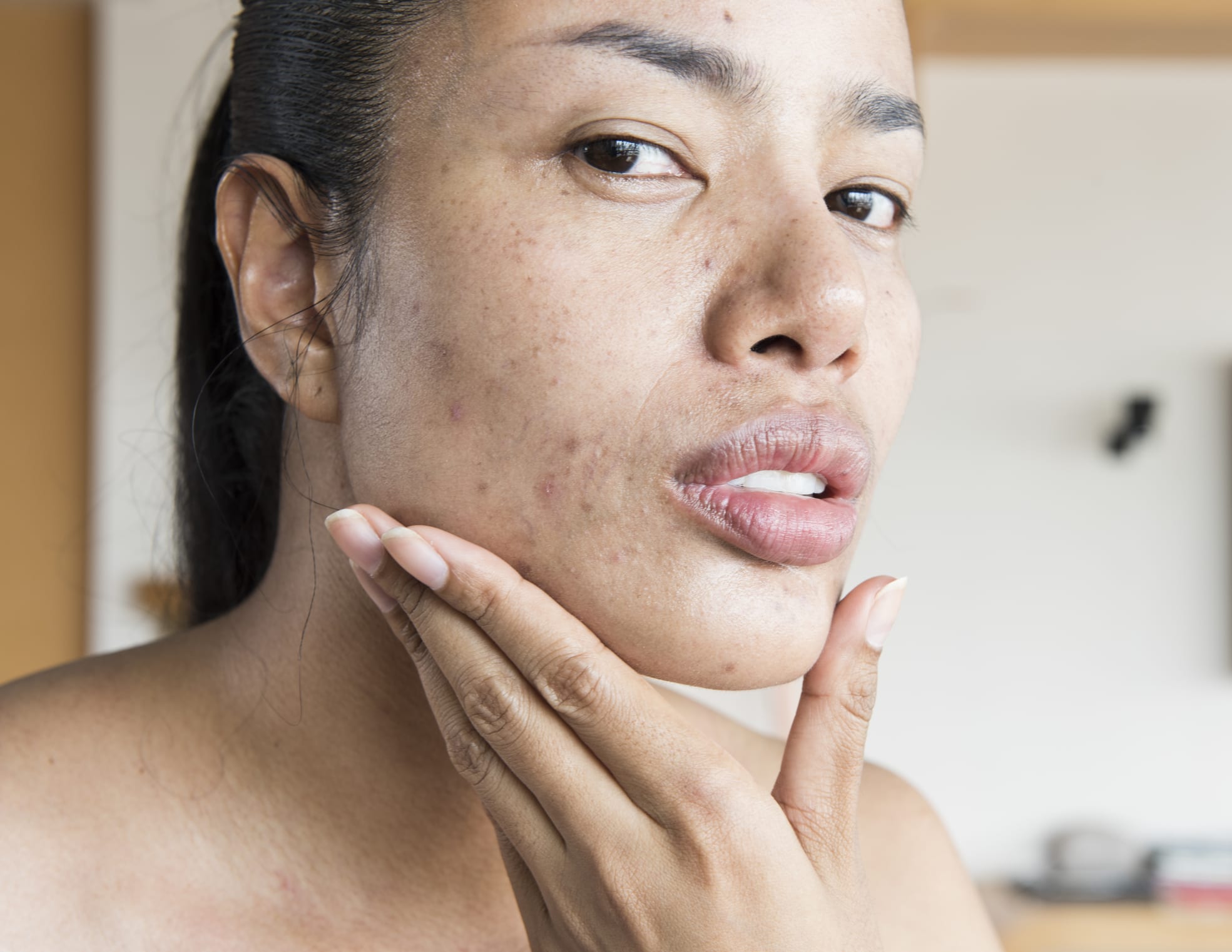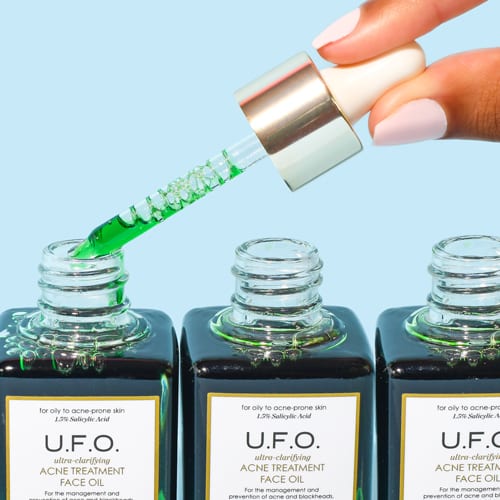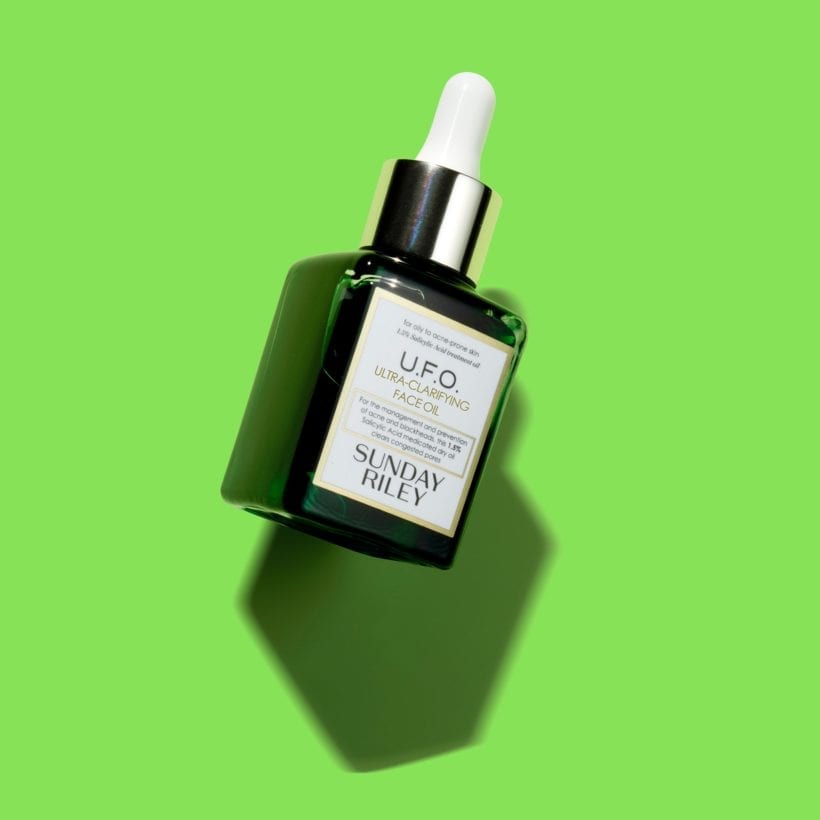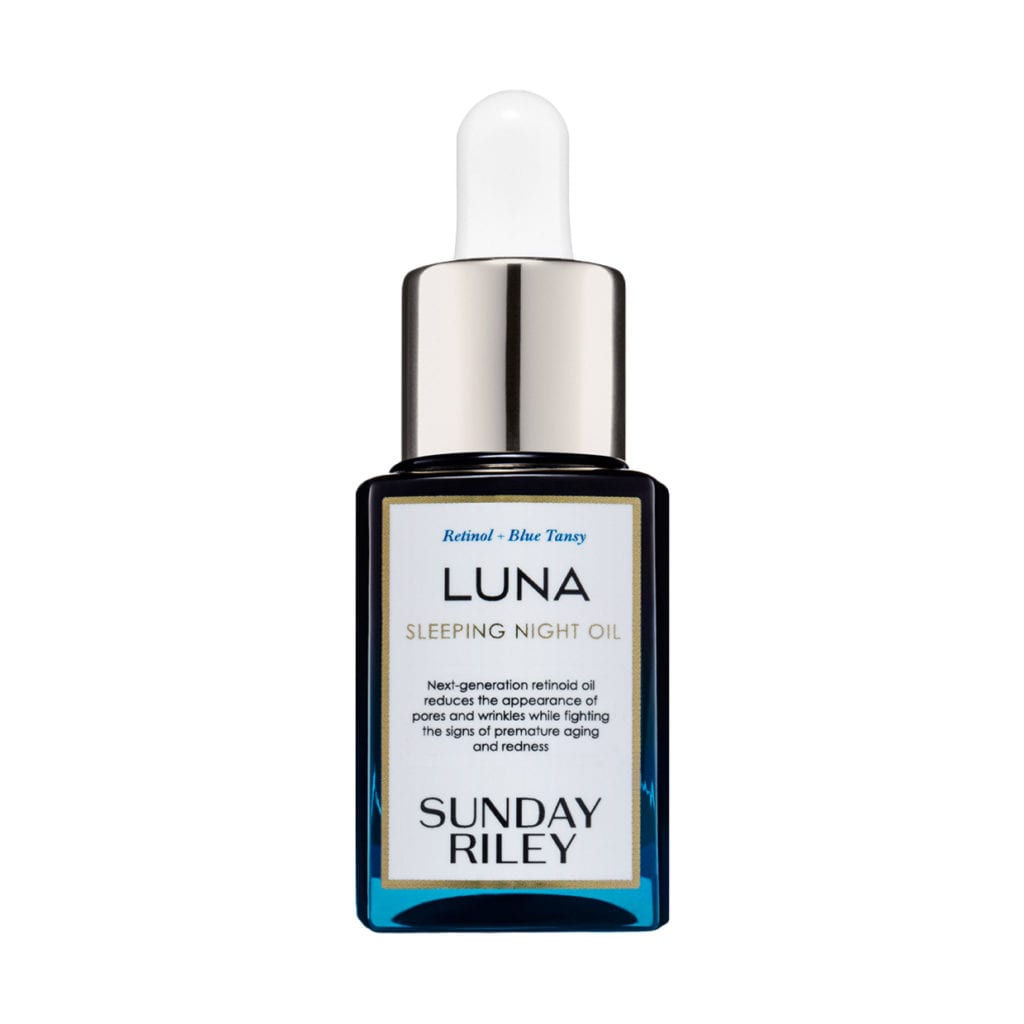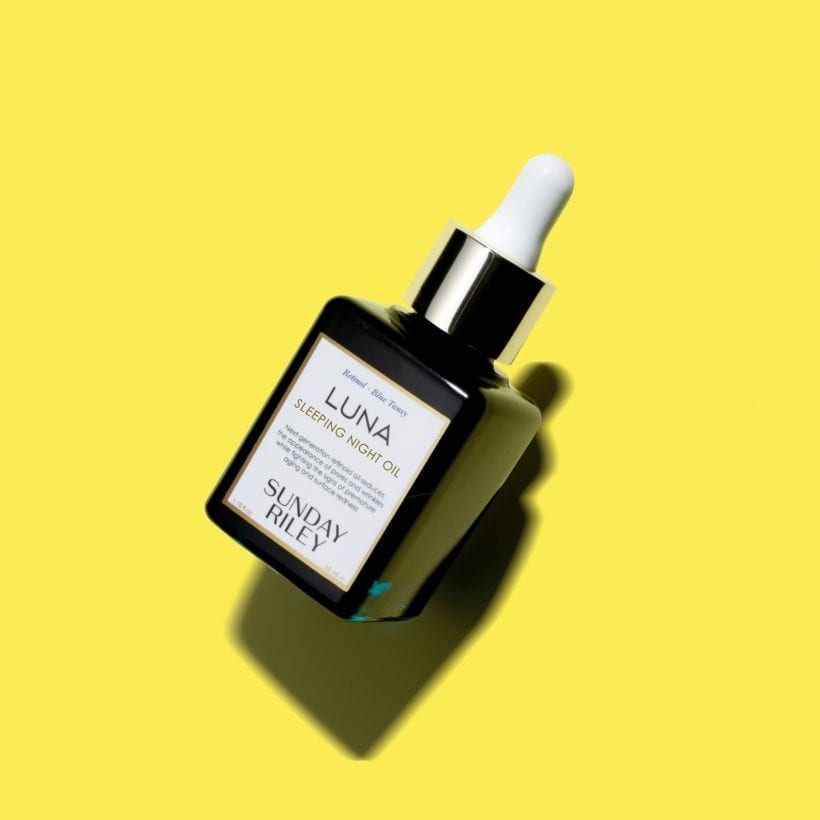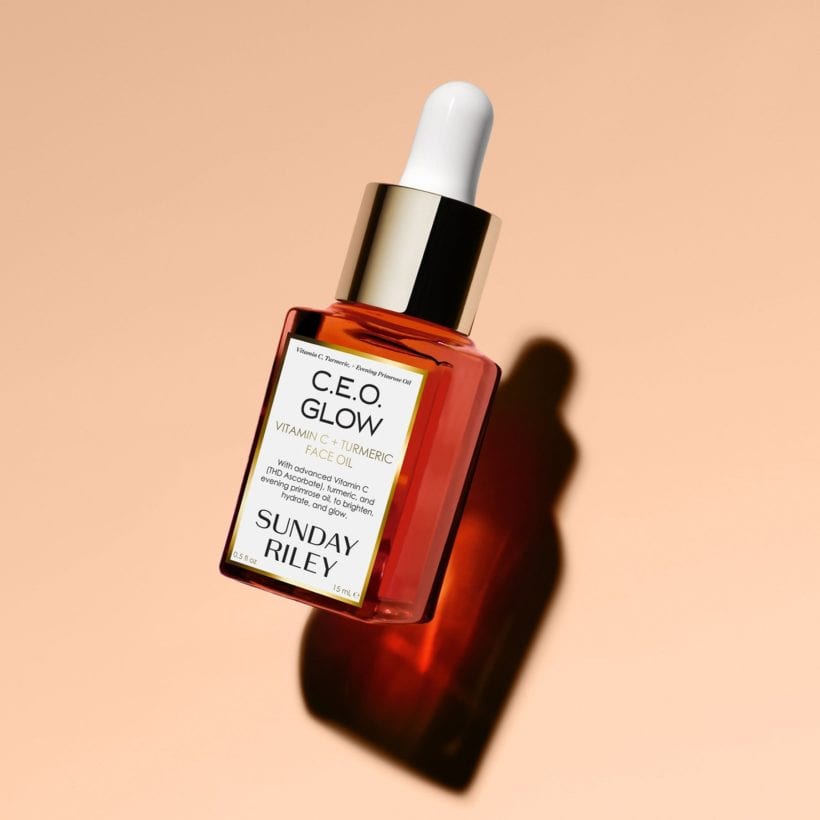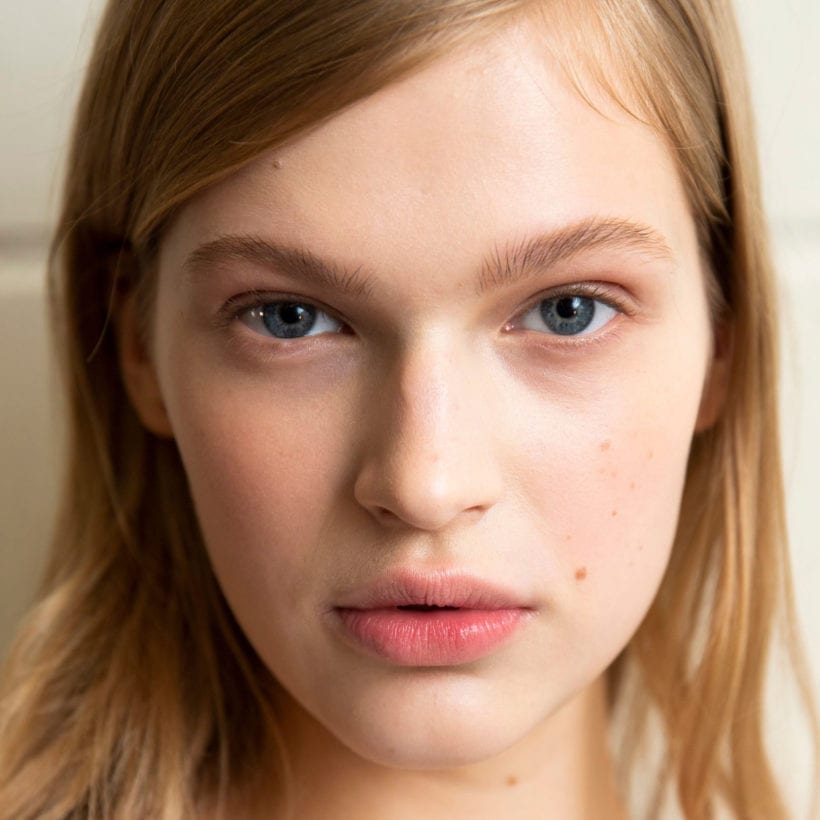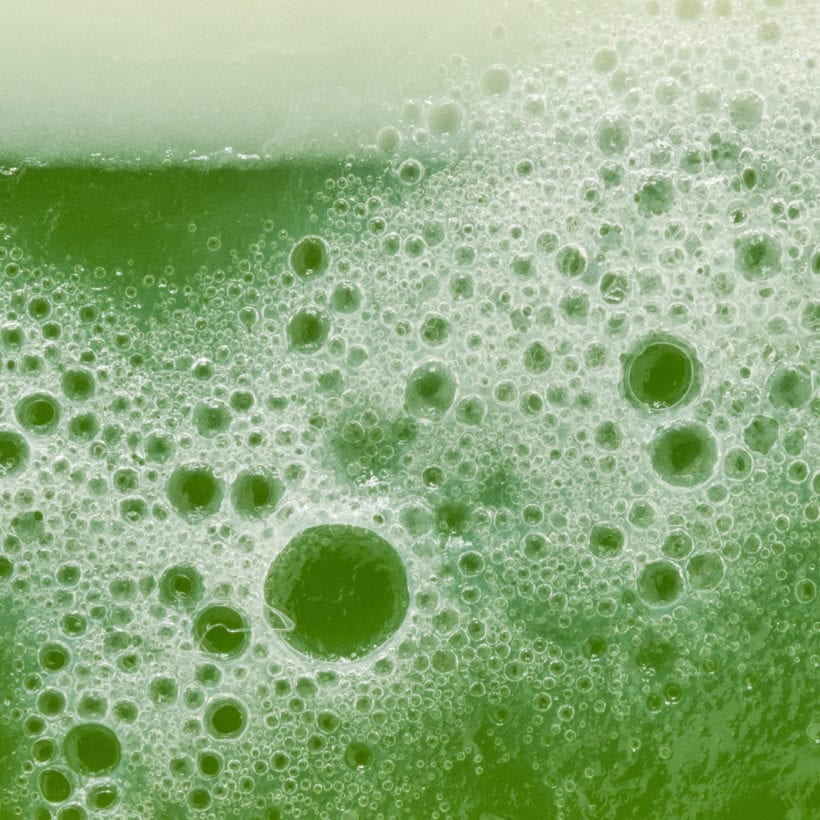If you have oily or acne-prone skin, it’s easy to understand why you’re conflicted about using facial oils or other oil-based skincare products. There is a huge misconception of how all the oils will clog your pores and cause breakouts. The truth is, “not all oils are created equally,” says Fatima Fahs, MD (@dermydoctor), a Michigan-based dermatologist. “Just because you’re oily, doesn’t mean your goal should be to eliminate oil from your routine. Oftentimes, oily-prone individuals over-exfoliate or strip their skin of their natural oils, causing our sebaceous glands to pump up the oil production to compensate for the dryness,” says Fahs. So, for the skin to find the moisture it craves, facial oil can help find balance in your sebum levels so that you won’t break out as often. 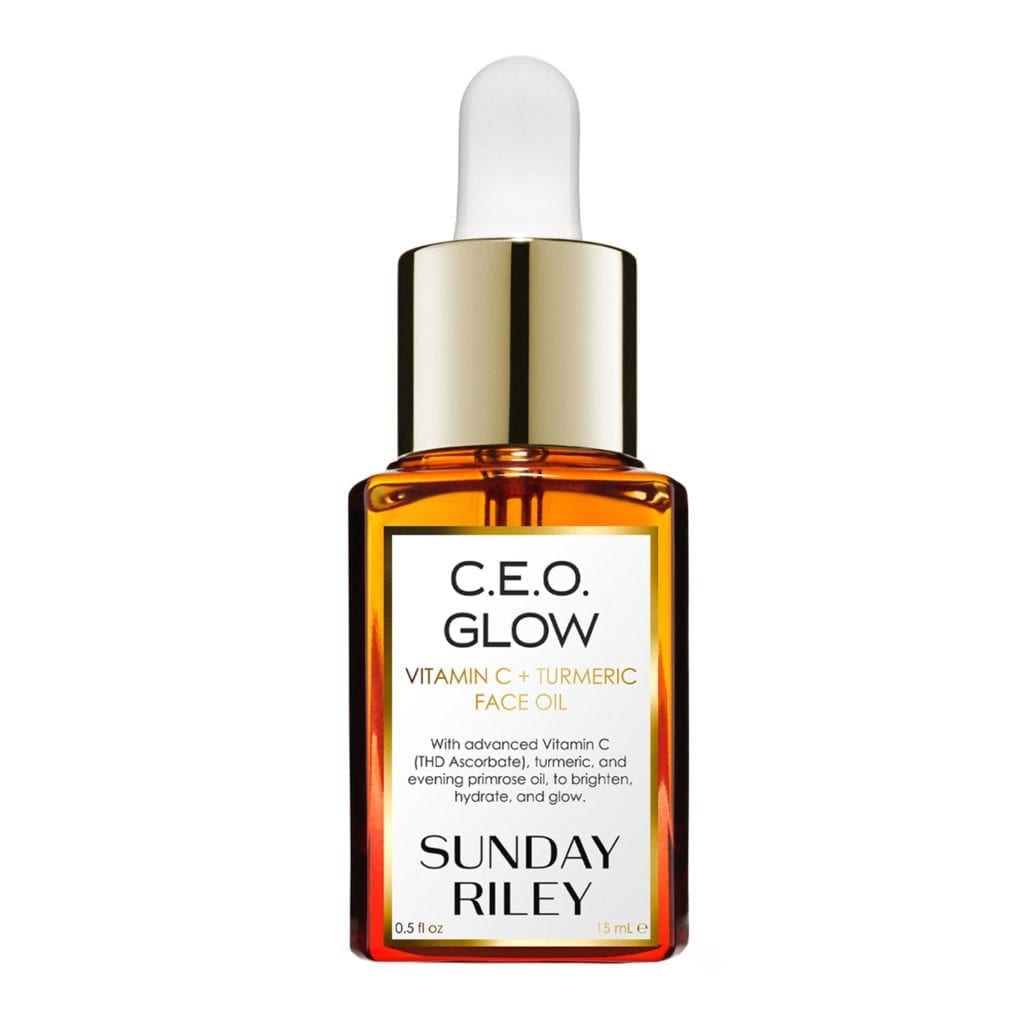
‘I like creating things and solving puzzles. I started a skincare company and formulated the products because I believe that I have the ability to listen to what people want and craft formulas that can actually make a change in the way people look and feel. I will start with a blank notepad where I write out every formula we produce. That’s how our treatment oils were born,” explains Sunday Riley, CEO, founder and product formulator. ““Choose treatment oils that contain ingredients that are antibacterial, anti-inflammatory or antioxidants. You’ll have the active transformation but you aren’t irritating the skin in the process due to the botanicals in the formula. Our philosophy is powered by science, balanced by botanicals. Oil-based products can be the hydrating vehicle that carries a more irritating active ingredient.”
“Don’t be afraid of oils! The right formula for an oil shouldn’t make your skin oily. Our oils are not just oils. They are basically your serum and your oil in one. I love that two-for-one. Our active, dry-touch oils sink in and leave the skin really fresh and dewy-looking. Massaging your skin will also increase blood circulation, which will help the products absorb and sink in deeper,” says Sunday Riley.
Meet the Experts
Sunday Riley , CEO, founder and product formulator
Fatima Fahs , MD (@dermydoctor), a Michigan-based dermatologist
This doesn’t mean you have a green light to put any facial oil onto your skin and call it a day. But as long as you’re exfoliating correctly (so that oil, bacteria and dead skin aren’t getting trapped in your pores), there are definitely some oils that will work better for your skin type. For the best exfoliation, we recommend using Good Genes Lactic Acid treatment daily. Make sure to avoid these acne routine mistakes so you can leave your skin looking glowy and healthy. Here’s what you need to know to do it right:
Which facial oils are better for acne-prone skin?
“Oils that contain acne-fighting salicylic acid like U.F.O. (Ultra-Clarifying Face oil) can be the perfect way to introduce this product into your routine if traditional salicylic acid-based products are too drying for you,” says Fahs. “Salicylic acid is one of my favorite ingredients for acne. Salicylic is oil-soluble, so it dissolves the oily build-up deep within the pore. It can be very drying as well, but that’s why I like U.F.O. – because it’s salicylic acid but in an emollient base, so it’s not going to strip your skin, and you can use it every day,” says Sunday. “Salicylic acid can be aggressive and irritating, but U.F.O. is not. You’ll get all the benefits of salicylic acid. It is phenomenal. It’s great for your pores but can dehydrate and remove the oil from your skin. So, your skin is getting dry, crappy and flaking. Putting salicylic acid in an oil blend prevents the salicylic acid from destroying the skin’s natural moisture barrier.” Another great ingredient in the U.F.O. is tea tree oil. “It’s a natural antibacterial and antifungal component, which can be helpful for acne or in those who don’t tolerate traditional acne ingredients,” says Fahs. “It helps to purify the skin and support clarity,” adds Sunday. “I don’t have a lot of congestion in my skin, but once a week, I’ll do some U.F.O. to keep my pores cleared out.”
Which formula is the best for acne-prone skin?
You want to look for an oil that is lightweight and silky. The best face oils for acne-prone skin should have a “dry touch” finish, meaning they sink in and disappear. One that will apply and be absorbed instead of something that feels really greasy sitting on top of your skin. Sunday explains: ‘The right formula for an oil shouldn’t make your skin oily. There are cosmetic oils that you can buy that leave your skin oily, but ours won’t do that. They sink in and leave skin really fresh and dewy-looking. You should never use too much of a layer with the oil surface on your skin. Sometimes, people over-put, or they don’t rub it in enough. If you get dry skin, it will absorb more. If you have oily skin, it absorbs a little bit less. Adjust for your skin type and massage it into your skin. Massaging your skin will also increase blood circulation, which will help the products to absorb better and sink in deeper. You shouldn’t be left with a ton of oil surfacing on your skin. I put it on at night, and when I wake up, I don’t have any oil on my face. It just sinks in throughout your sleep. I rub it in and go about a few other things like taking out my contacts, then put my other stuff on top of it.”
Luna Sleeping Night oil and C.E.O. Glow oils are also working well for oily skin. Retinol ester in Luna reduces the appearance of pores and wrinkles while fighting the visible signs of premature aging: fine lines, uneven texture, dark spots, dryness, and dullness. Luna is balanced with blue tansy and German chamomile essential oils, both rich in soothing blue azulene, to neutralize surface redness and the signs of sensitivity. ‘When I formulated Luna Sleeping Night Oil, I wanted to reduce the amount of downtime that people were experiencing with other forms of retinol, so I used a very gentle but powerful form of retinol. I then placed it into this rich and nourishing dry touch oil which is full of antioxidants and hydrating botanicals to calm and soothe the skin’, Sunday says. C.E.O. Glow is a Vitamin C + Turmeric glow-giving face oil that recharges the radiance of your skin—infused with advanced Vitamin C and golden turmeric for instant vibrance and antioxidant defense. C.E.O. Glow delivers cold-pressed, nutrient-rich extracts into your skin, leaving your complexion looking brighter and nurtured. It can be used twice a day.
What makes Sunday Riley’s facial oils so special and so coveted? According to NPD, it was named #1 prestige face oil brand in 2021.
‘One of the things that makes them so special is that we cold press all of our oils. If we use heat to extract the oils, it kills the nutrients. It’s the same with cooking oil. We pay a lot for high-quality olive oil and cold-pressed extra virgin olive oil. It’s the exact same way with face oils. A lot of the time, people make cosmetic oils, they’re pressed in different regions, and then they come in large drums. They’re shipped by sea, and they get very hot. We make them cold-pressed and fresh, and we make them in very small batches. I think people have faith in us, that if we make something, it’s going to do what it says it’s going to do. Our ingredients are of the highest possible quality. I always make sure we are using the absolute best suppliers. I knew if I focused on fast-acting formulas, results, and clinically proven ingredients, the skin transformation would speak for itself,’’ says Sunday. Being the #1 prestige face oil brand in America, according to NPD, ‘means we make a lot of oils! It’s important to us that oil production is sustainable, so we created our Zero Waste Oil Process’, says Sunday. The seeds we use to press our oils can contain as little as 10% of the material needed, and the remaining 90% never goes to waste. This byproduct is ground into a seed powder and put into various nutritional supplements and plant protein forms for animal and pet use.
Why should you use non-comedogenic oils for your face?
You often hear about the miracles of using olive or coconut oil everywhere, from your scalp to your feet. “For most people, these can be great for dry/dehydrated hair or even skin on the body, but these oils are highly comedogenic (pore-clogging) and should be avoided, especially if you’re prone to acne,” says Fahs.
What about dry oils? “The term ‘dry oils’ sounds like an oxymoron, but it’s used to describe lightweight oils that are absorbed quickly into the skin instead of leaving a greasy residue. This term is meant to describe the finish of the oil. In contrast, ‘wet oils’ tend to leave more of a sheen and may be slower absorbing. They are preferred for dry, cracked skin instead,” says Fahs. The factor that classifies an oil as ‘dry’ is a high concentration of ingredients. “That’s why most people with acne-prone skin can benefit from dry oils like U.F.O., marketed for this skin type, because of its lightweight, fast-absorbing consistency,” Sunday says.
Why should you avoid oils with fragrances?
“A lot of oils, including essential oils, with natural or synthetic fragrances can be very irritating to the skin and cause contact dermatitis. It is best to test a new oil on a small area of skin, for example, behind your ear or inner arm, and make sure you can tolerate it first,” says Fahs. “None of our oils contain added fragrances. The scents you notice, such as in our Luna Sleeping Night oil, originate from the natural ingredients used in the formula. Specifically, the aromas come from essential oils like blue tansy, German chamomile, and Cape chamomile“, says Riley.
